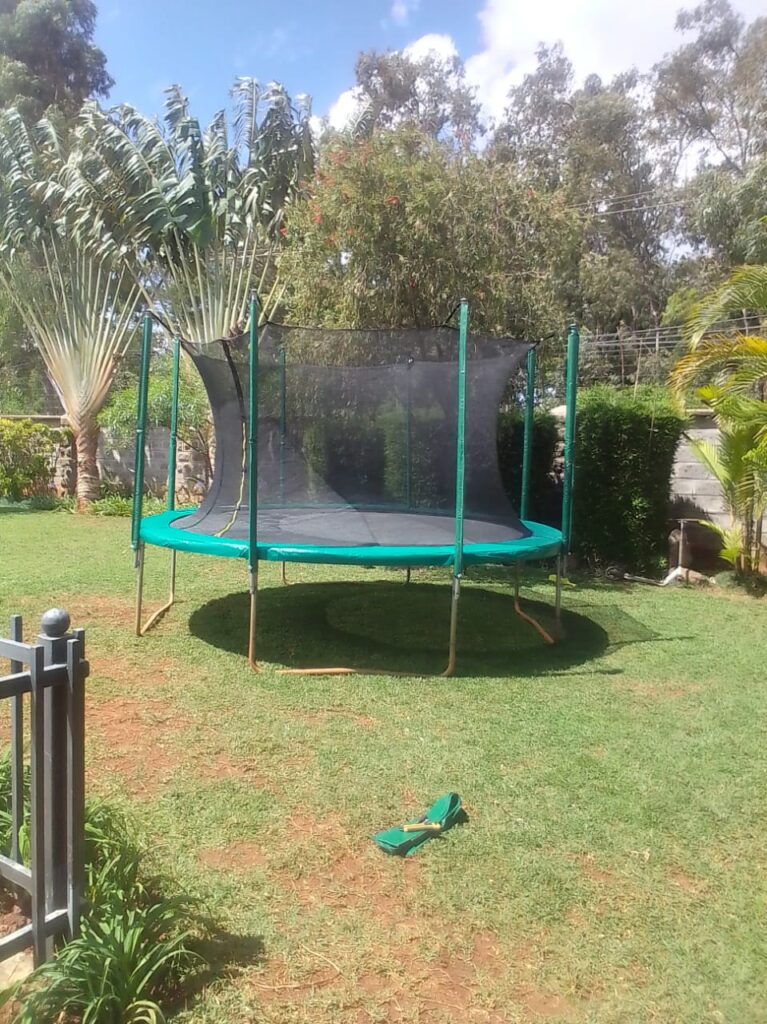Why Busy Professionals in Kenya Are Turning to Trampolines for Health and Productivity

In Kenya’s corporate world, the pressure to deliver is relentless. Long commutes, demanding deadlines, and extended hours at the desk leave many professionals exhausted and unfit. For most, gym memberships end up underutilized and jogging is often impractical in Nairobi’s traffic-heavy, urban neighborhoods. Yet maintaining peak health remains non-negotiable for anyone who wants to perform at their best.
 Contact:
Contact:
Phone/WhatsApp: 0722 724 893
Visit: Golden Moon Star Building, Kilimani
Website: thriftyent.com | frugalinnovations.co.ke
This is why more professionals are investing in trampolining in Kenya. Once dismissed as children’s play equipment, trampolines are now recognized worldwide as powerful fitness and wellness tools. In fact, they provide a unique combination of cardio exercise, stress relief, and flexibility that suits Kenya’s fast-paced work culture.
A Smarter Workout for Tight Schedules
NASA’s groundbreaking research revealed that rebounding on a trampoline is almost 70% more effective than running on a treadmill. Just ten minutes of bouncing can burn as many calories as a 30-minute jog. For a Kenyan professional who may only have a 15-minute break between Zoom meetings or a short window after battling Thika Road traffic, this is a game-changer.
Unlike running or cycling, trampolining is low-impact. This makes it safer for professionals in their 30s, 40s, and 50s who may already be dealing with backaches or joint stress from long hours of sitting.
The Professional Advantage of Trampolines
1. Convenience at Home or Office
Mini trampolines (rebounders) are compact, affordable, and can be used in small apartments or office spaces. No more battling traffic to squeeze in a gym session.
2. Stress Relief for High-Pressure Roles
The rhythmic bounce stimulates endorphins and lowers cortisol levels, which is vital for executives, lawyers, and entrepreneurs managing heavy mental workloads.
3. Whole-Body Fitness in Minutes
Unlike isolated workouts, trampolining engages core, legs, and arms simultaneously—delivering a balanced workout in minimal time.
4. Family and Social Value
For parents, trampolines are more than fitness equipment—they double as family playtime tools, helping children and adults stay active together.
Comparing Trampolines with Other Fitness Options in Kenya
| Fitness Option | Average Cost (KES) | Calories Burned (15 mins) | Flexibility | Space Requirement | Wellness Impact |
|---|---|---|---|---|---|
| Gym Membership | 5,000 – 15,000 monthly | ~120 | Low (commute required) | None at home | High |
| Jogging Outdoors | Minimal (shoes only) | ~140 | Medium | N/A | Moderate |
| Stationary Cycling | 40,000 – 100,000 | ~130 | Medium | Medium | Moderate |
| Trampolines in Kenya | 15,000 – 60,000 | ~160 | Very High (home use) | Small/Medium | Very High |
The Kenyan Context
Nairobi’s average commuter spends over two hours in traffic daily, according to mobility data. That leaves little time or energy for structured workouts. Trampolines cut through this problem by bringing the gym to your doorstep. Whether you live in Kilimani, Syokimau, or Thika, a 15-minute session in the morning or evening can reset your body and mind for the day.
Additionally, as wellness culture grows among Kenyan professionals, trampolines are increasingly seen not just as exercise equipment, but as lifestyle enhancers—tools for maintaining productivity, energy, and even family harmony.
The modern Kenyan professional needs solutions that save time, deliver value, and support long-term wellness. Trampolining in Kenya fit this bill perfectly. They combine fitness, stress relief, and family fun in one compact package. Whether you’re chasing promotions in Nairobi’s corporate towers or building a business in Mombasa, bouncing could be the easiest way to balance work and health.
In short: every busy professional needs a trampoline—not tomorrow, but today.
- Where to Repair Trampolines in Kenya: Fast, Affordable, Professional Services by Frugal Innovations Kenya
- How to Safely Repair a Sun-Faded or UV-Damaged Trampoline Mat in Kenya
- Are Trampolines the Next Big Fitness Asset for Kenyan Women?
- How Nairobi’s Dust and Wind Patterns Affect Trampoline Lifespan — Best Trampoline Repairs in Kenya
- How to Start a Trampoline Hire Business in Nairobi — Costs, Earnings, Risks, Competition

 Contact:
Contact:
